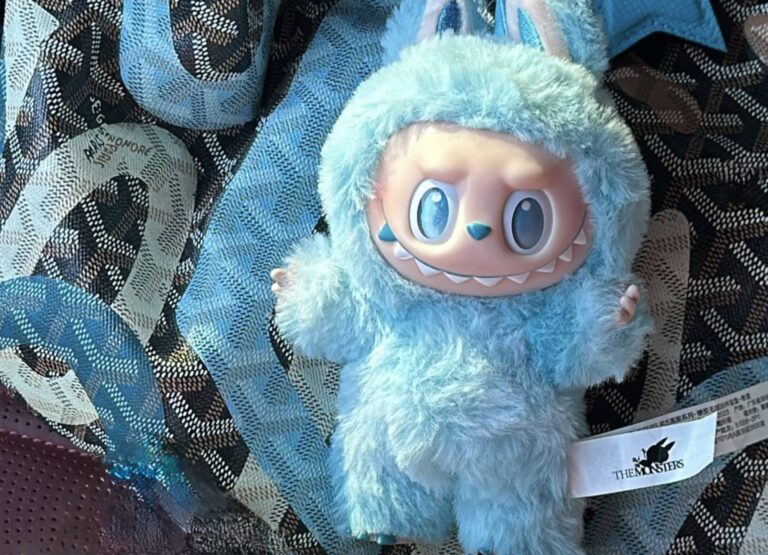Once a niche designer toy sold in blind boxes in China, Labubu has rapidly become a status symbol, and the wide-eyed, bunny-eared, nine-toothed figure is being targeted by counterfeiters in the same way as traditional luxury goods. Floods of fake Labubu plushies are offered up for sale by counterfeit sellers on sites like Instagram and are saturating resale platforms, where they are being listed at the same high prices as the real ones, and frequently bundled in listings with high-end designer goods.
As a result of skyrocketing demand for Labubu toys and the corresponding rise in infringing versions, specialized authentication is coming into play. CheckCheck, for instance, announced on Wednesday that it has launched an authentication platform to verify the legitimacy of the collectibles, seemingly prompted by the wild popularity of Labubu. The company, which got its start as a sneaker authentication service, says that it is the first U.S.-based company to offer authentication specifically for Labubu figures, joining international entities like Legit App.
“Labubu is no longer just a toy – it’s a collectible with fashion credibility,” said a representative from CheckCheck. “When we started seeing Labubu figures pop up next to Chanel bags and Van Cleef bracelets, we knew it was time to take authentication seriously in this space.”
Labubu’s leap into luxury has been driven in part by its scarcity and cultural cachet. Sold in blind boxes, figures start at around $15, but rare editions now command more than $1,500 on the secondary market.
Collectors and influencers alike flaunt them as status objects, often clipped to the handles of high-end handbags or integrated into curated jewelry trays.
POP MART’s numbers reflect this explosion in demand. In 2024, the publicly traded company reported 13.04 billion RMB ($1.8 billion) in revenue – a 106.9 percent increase year-over-year. Of that, the Monsters line, which includes Labubu, generated 3.04 billion RMB, accounting for nearly a quarter of the Chinese company’s total sales.
Part of what makes Labubu’s rise particularly remarkable is that POP MART has no official collaborations with fashion brands, meaning that the collectible’s association with luxury has been organic, influencer-driven, and community-fueled. And with that increasing embrace by luxury buyers comes risk. As more counterfeit Labubu figures infiltrate the market, often indistinguishable from authentic ones to the untrained eye, and as prices for these little figures continue to grow, authentication is becoming a necessity.
THE BOTTOM LINE: Expansion by companies like CheckCheck into this space represents not just a new offering, but a recognition of how consumers are shopping – and what they are shopping for. Today’s collectors move fluidly between sneaker drops, jewelry auctions, and vinyl toy releases. And in that landscape, Labubu is proving to be coveted – and just as in need of protection – in something of the same way as a pair of limited Jordans or a pre-owned Cartier watch.
As demand for Labubu surges, authentication providers are starting to compete to position themselves as go-to authorities not just for things like sneakers and handbags, but for collectibles, as well.


